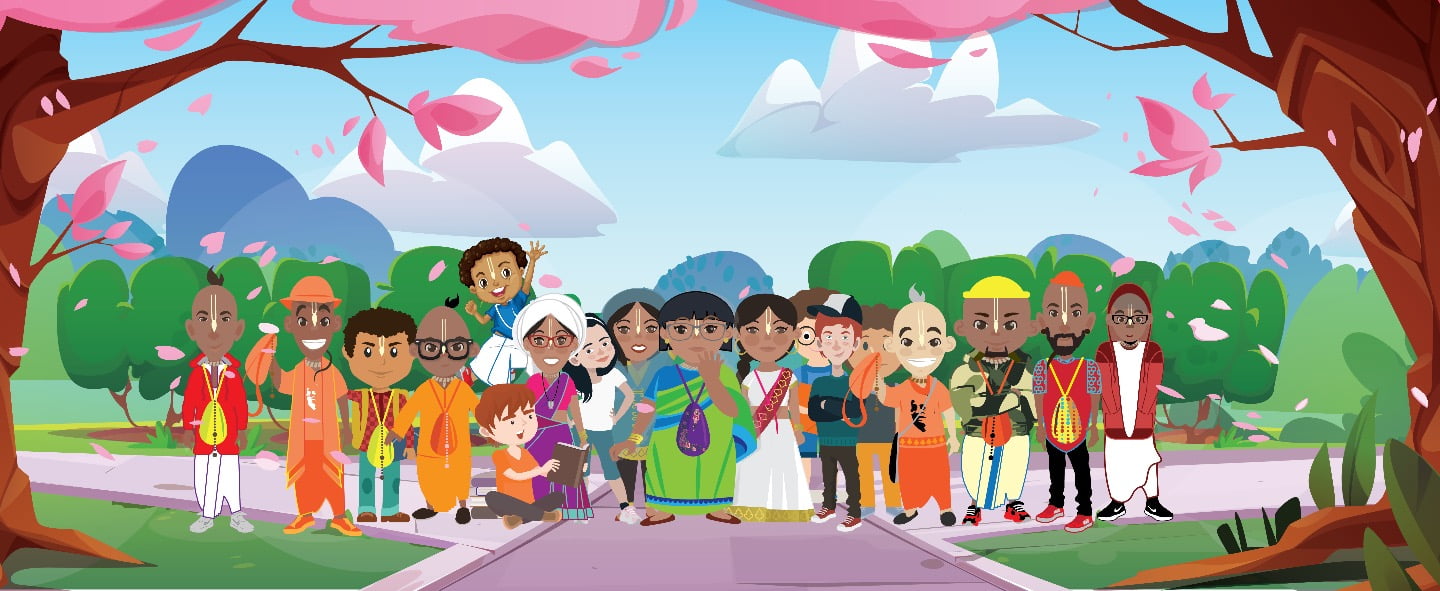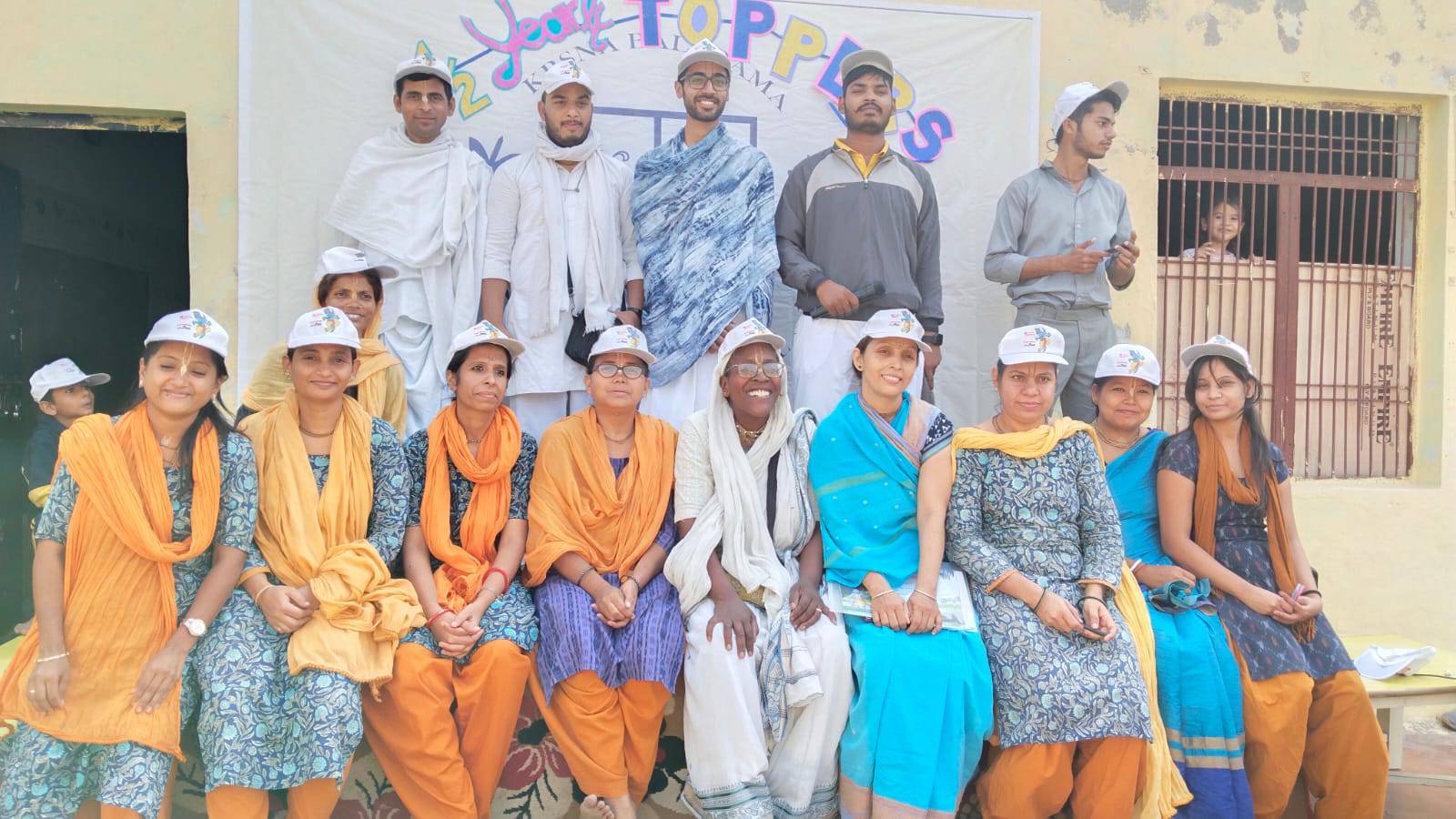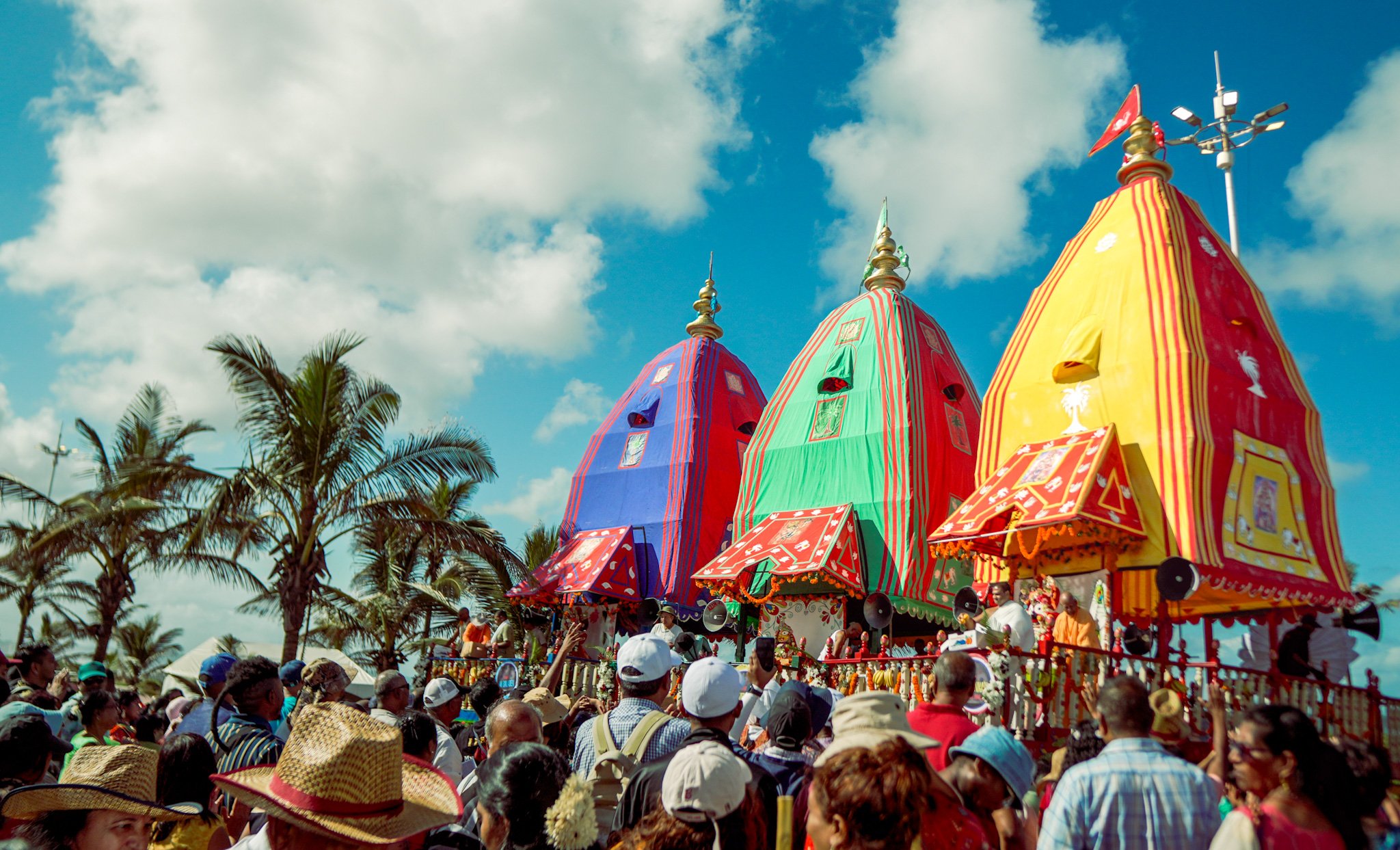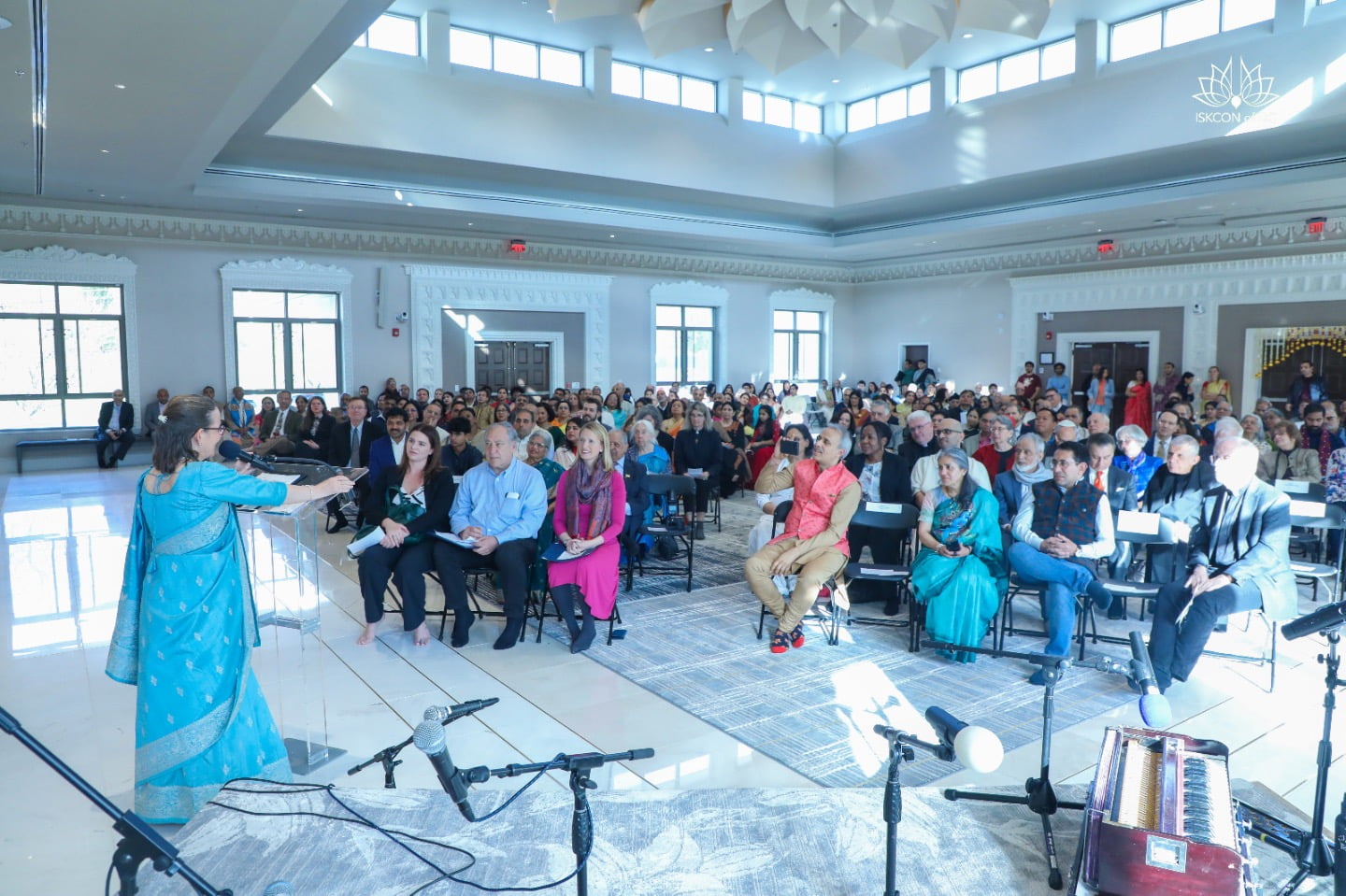Violence, Non-violence and ‘Real Violence’
By Romapada Das (Ramesh Kallidai) | Aug 29, 2015
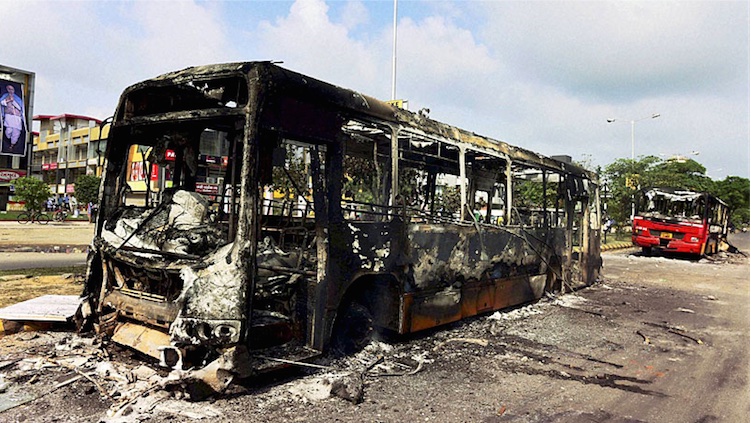
Nothing prepared the Indian state of Gujarat for the scale and extent of the Patedar agitation which spread like wildfire in two short months in July and August 2015. It was a surprise even to seasoned Patel leaders to witness the speed by which the agitation demanding caste based reservations for Patels in education and employment spread. It struck a chord that spilled millions into the streets and turned them into rioters and arsonists.
Last week, my father-in-law Laljibhai Dhanani, a local Congress Leader, who has now renounced all political connections to fight on behalf of ‘my community’ called me up from the Patel rally in Surat.
“Haven’t you yet turned on the TV to watch the news yet?” he admonished me. “There are a million Patels agitating on the streets today. Surat has never seen such a large gathering in its entire existence. And you haven’t even turned on your TV to see it yet, have you?”
A week later, I saw eight coaches parked outside my restaurant named Vrajvasi, in the Patel dominated Mota Varachha area of Surat. Hundreds of youth were assembled amidst crates of water and parcels of food, waiting to board the coaches.
“They are all going to the mega-rally in Ahmedabad organized by Hardik Patel,” said the clothes shop owner next door. “Tomorrow, we will see a rally in Ahmedabad that will be even bigger than what we had in Surat. More than 500 coaches and 2000 cars are going form Surat to attend the rally. And what is more, no one pays any money to get there. The coach ride is free, and the water and food are free too.”
The next day, I rang my father-in-law to find out more about the situation in Ahmedabad.
“I am half way to Ahmedabad,” he admitted. “My community is in trouble, and I am needed there.”
The mega- rally in Ahmedabad was a mega success. Almost two million (20 lakh agitators) were reported to have turned up. They chanted slogans, evoked the name of Sardar Vallabhbhai Patel, their iconic leader who had been awarded the title of ‘Ironman of India’ during India’s freedom struggle in the 1940s, listened to their new charismatic leader Hardik Patel, and responded to his call for action.
“If the Gujarat government does not listen to the demands of the Patel community, the lotus will not bloom here in 2017,” Hardik Patel thundered, referring to the election symbol of the ruling BJP, the lotus.
The mood outside my restaurant in Surat was belligerent. The Patels who dominate every household and every street outside my restaurant were out on the streets in large numbers, huddled together in groups. Many were glued to their Television sets, watching every move by Hardik Patel.
When the rally in Ahmedabad did not end at the scheduled time of 5.00 pm, officials swung into action. Hardik Patel inflamed matters by announcing an indefinite hunger strike. The Police swooped down and arrested him. The mob turned hysterical. The Police charged them with batons and sticks. The mobs went ballistic. They spilled out into the streets of Ahmedabad and started damaging Government property and setting fire to parked vehicles.
I called my father-in-law to check if he was safe. Fortunately, he had left the rally at 1.00 pm and was already back in Surat.
At 8.00 pm, I had a smattering of customers in my restaurant, much less than what we normally expect on a weekday. A family of eight was having a meal peacefully at a corner table, and several customers were eating in our outdoor area.
At 9.00 pm, a local friend came to me breathlessly and announced, “There are hundreds of people assembled at Lajamani Chowk. I think they are going to start something. You’d better shut the restaurant down or they may burn it.”
There are two main intersections near my restaurant that were busy most of the time. One is Lajamani Chowk, which is hardly 20 metres away, and the other is Sudama Chowk which is a kilometer away.
I walked briskly to Lajamani Chowk and saw hundreds of people assembled there. They had iron rods and sticks in their hands, and were shouting “Jay Sardar” and “Jay Patidar” at no one in particular. A restaurant at the Chowk had downed its shutters. All the other shops were being closed in a hurry too. I noticed several youth carrying cans of petrol with a purposeful gleam in their eyes.
I quickly instructed the manager and the captains at the restaurant, “Please ask all customers to leave immediately. Don’t ask for their bills. You can pack away any food they have not eaten and give them a takeaway packet. Down all the shutters and lock them from outside. The only entry in and out of the restaurant should be from the service entrance on the first floor. I want all lights visible outside switched off. Take everything in our outside dining area and store them inside, including chairs, tables, counters, signboards, potted plants, and anything that can be broken. Ask all the staff to change out of their uniforms and wait outside quietly.”
I also called up relatives and friends from the Patel community and asked them to stand vigil outside the restaurant.
“Since I am not a Patel myself, they may target my restaurant first,” I told a relative.
“Of course not, you are the damad (son-in-law) of a Patel. You are as good as a Patel. They won’t touch you,” he responded.
Ten minutes later, more than 2000 people had assembled at Lajamani Chowk. Hundred of bikes and cars were speeding everywhere hooting loudly. Half an hour later, I saw a few masked men with iron rods smashing all the security cameras in the Chowk in an organized manner. After this was done, it was like a spark had been thrown into a pile of dynamite. The violence that erupted threw me off balance.
Young men started breaking glass, smashing street lights, and setting fire to rubbish bins. Small wayside stalls serving food and tea were vandalized and set on fire.
A friend of mine, Padu, spotted me standing at the Chowk and invited me to ride behind him on his bike.
“Let’s go around and see what is happening around here,” he said.
We went to Sudama Chowk. Hundreds of men were assembled outside the gate of every apartment block whispering and pointing. The atmosphere was charged and electric. Almost every person scuttling around on a bike had an iron rod in his hand.
On the way we saw a huge mob outside the fire station. They had set fire to the fire engine standing inside and had dragged hundreds of metres of hose pipes on to the streets.
Fifty metres away, I saw dense smoke rising from a huge fire. At least two thousand people stood around it chanting the new slogan, “Jay Sardar, Jay Patidar.”
“They took the boat that the fire station uses to rescue people drowning in the river Tapi and have set it on fire,” explained Padu.
I saw several young people smashing the windows of a community hall owned by the Surat Municipal Corporation. They had apparently disrupted an Art of Living meditation class and bullied several ladies inside to step outside.
As we made our way back to my restaurant, I heard a huge cracking sound and a large roar. I looked around and saw scores of men outside the office of the ruling Bharatiya Janata Party. They had taken down a huge billboard of the party and were trampling on it with a sense of glee.
“Are we going to keep the restaurant open tomorrow?” asked my manager.
“Probably not,” I responded. “Hardik Patel has called for a full-scale bandh (shut down of all essential services) tomorrow and we cannot keep the restaurant open during a statewide strike. The Patel mobs will burn down any shop that is open.”
A few of my relatives dropped by to enquire if I was safe.
“You’d better not drive home. There are mobs turning violent everywhere,” they advised me.
Since I have a private room close to the restaurant in our staff quarters, I decided to stay back rather than drive. Padu asked my driver to park my car in front of his house which was inside a gated community just to be sure ‘no hooligan came and burnt it just for fun’.
The next day, I woke up at 6.30 and came out at 7.00 am to see if I could buy some milk for my breakfast. Not a single shop was open. Several people were already out on the streets walking amidst piles of ash and cinders in every street corner.
“Jeeju,” called a voice. I looked around and spotted a relative. He was a cousin of my wife, and hence called me ‘Jeeju’ a respectful term for a brother-in-law.
“I am trying to get some milk, but no shops are open,” I moaned. “Breakfast is the most important meal of the day, and I need some milk.”
“Don’t worry, I’ll find you some,” he said confidently and took me around on the back of his bike to a dairy farm two streets away. There were hundreds of cows and buffalos standing in neat rows right there in the middle of the city.
“I buy my milk here every day,” he announced.
Unfortunately, they did not have single ounce of milk for me. Back at the restaurant, I found a packet of milk from the previous day in our cold storage and managed to have a hearty breakfast, after all.
By 10.00 am, the streets were busy once again. Lajamani Chowk had turned violent as if on cue. At least three thousand people had assembled there. They had blocked the intersection from all sides with half-burnt and broken street lights, barrels and carts. There was a fire raging in the middle with a pile of rubbish. Several wooden trolleys lay around slowly burning away.
Down the lane, an entire Police station had been burnt down to ashes after the mob had chased the police away. A car lay turtle completely charred and reduced to a shell.
The bridge across the river Tapi that started at the Chowk and connected Mota Varachha to the rest of Surat was completely blocked with agitators.
A car passed by slowly through the unruly mob. A head popped out of a window with a mobile phone. He focused his phone and took a few pictures of the crowd that was wielding rods and batons. An angry roar went up as the agitators stopped the car and dragged out the passenger.
“If you don’t delete the pictures now, we will burn your car down,” they yelled.
The frightened man quickly deleted the pictures. The phone was passed around and examined before the car was allowed back.
Suddenly, a funeral procession wound its way through the Chowk. The mob stepped aside to respectfully allow the mourners through. The softer human emotions did show up even through the anger and angst.
A 4-G mobile tower standing near the Chowk was set on fire and smoke started billowing out of the top which was at least 20 metres tall.
Across the river, we could see at least ten spirals of smoke. It seemed like the whole city was on fire.
My friends and I decided to venture out on our bikes to see what was happening around.
At Sudama Chowk, we saw an angry crowd beating three policemen. The frightened policemen were pleading for their lives. One of them managed to run away, but the mob continued to thrash the other two.
We crossed the river and saw an unbeliavably thick column of black smoke arising between two flyovers. These were two flyovers that were being built side by side. The cranes, trucks, equipment and other vehicles parked under the construction site had all been set on fire.
Down the road, the retail outlet of a popular chain of icecream call Dairy Don was being ransacked. Agitators had managed to open the shutters, smashed glass windows, opened their freezers and were devouring ice cream with relish.
“Why are they damaging private property?” I asked. “Yesterday they were only damaging Government property. “
In response Padu showed me a video clip that had gone viral. It was a statement made by a relative of the owner of Dairy Don who had used abusive language against the Patel Community. It turned out that the owner of Dairy Don was a ‘Makwana’ from the community called ‘Other Backward Castes’ (OBC). The agitation had now turned into an OBC vs Patel fight with the OBCs opposing the Patel demand for reservations, and the Patels considering the OBCs their new opponents.
Back at the restaurant, I found my father-in-law sitting with eight of his friends.
“Where were you?” he demanded. “I have been trying to reach you for the last hour.”
I noticed ten missed calls on my phone. I had not heard the ringtone because of the din surrounding me all the time.
Apparently, a crowd of fifteen people had arrived outside my restaurant an hour before, and had been surveying it suspiciously.
My father-in-law had summoned their apparent leader and asked him what was going on. He had discovered that the leader was a former Corporator of Surat who had lost his seat in the recent election to a BJP candidate. He admitted to my father-in-law that he and his cronies were surveying ‘appropriate’ properties they could burn down in the night and my restaurant had been picked as one of the most prominent targets in the area.
However, after seeing my father-in-law who was himself a Patel, they had decided to drop the idea of burning my restaurant down.
“I calmed them down, and had a meeting here with all fifteen of them,” said my father-in-law. “They now understand that this restaurant has a Patel interest, so they won’t dare to touch it. There is nothing to worry. But I have still called my friends here to see that no one does anything.”
My brother-in-law Mitesh rushed to the restaurant in no time after he heard about the threat. Other relatives started pouring in, all Patels.
“Don’t worry Jeeju, we are here to protect you,” they assured me.
An hour later, we heard that the slums that lay a kilometer behind my restaurant had witnessed heavy violence. The OBCs who lived there had uttered something inappropriate about the Patel community and 200 Patels had barged in with iron rods and pipes. In the ensuing violence two people had apparently been killed.
“One of ‘their people’ was killed with an iron rod that was smashed on his head,” reported a neighbor. Unfortunately, one of ‘ours’ was killed too.”
I shuddered to hear the ‘us and them’ language that was usually the cause of so many riots and violence around the world.
We went to the bridge on the river Tapi once again, but were appalled to see that every single street light had been bent from the base and lay across both sides of the bridge. Not a single vehicle could cross the bridge.
“Looks like we are stranded in Mota Varachha. Can we go to the city using Kapodara Bridge on the other side?” I enquired.
“No, the Police have cordoned off that bridge and are not allowing any traffic across it,” replied Padu.
We were trapped inside the Mota Varachha area for the night once again.
There was a steady drone in the sky, and we witnessed several military aircrafts slowly circling at a low attitude readying to land.
“The Government has sent in several battalions from the army to secure the city,” I was informed. “They will soon stage flag marches and probably even shoot on sight.”
Word soon spread about the impending threat to my restaurant. Twenty people from a high rise building that stood near my restaurant came to me and said, “Rameshbhai, don’t worry. We are with you. We will stay awake till 3.00 am tonight to guard your restaurant.”
Ten of my relatives had gathered outside my restaurant and we were sitting outside. Suddenly, another ten people turned up and shook hands with me. I did not know a single person from the new batch.
“They are from the Dhanani clan,” introduced my father-in-law. “When the family is in trouble, they always come immediately without asking any questions.”
I felt a bit overwhelmed by the support from so many people, even from those who did not know me personally.
At 8.00 pm the streets were deserted.
“Looks like things are limping back to normal,” I told my relatives.
“Of course not,” they laughed. “Everyone has gone back to have dinner and watch the News. They will be out again after 9.00 pm.”
Sure enough, bikes, cars and pedestrians were back on the streets after 9.00 pm.
But the mood had changed.
People seemed less belligerent. The energy seemed to have drained from the mob. They had a tired look in their faces. The gleam in their eye had gone away. A few fires burned here and there, but very few new ones were being lit.
“I think there won’t be any more trouble tonight,” declared my father-in-law. “But we still need to stand vigil outside your restaurant, just to be doubly sure.”
Hundreds of people still huddled outside apartment blocks, but the iron rods had disappeared.
There were at least fifty people standing or sitting outside my restaurant now, ready to protect my property.
I asked my chef to cook a light meal for everyone and serve it to them.
“All fifty of them?” he asked me incredously.
“Yes,” I said firmly. “They have come to help us, and I plan to make sure they are not hungry or thirsty through the night.”
The vigil turned out into a late night party with everyone tucking into Chinese starters in the pleasant breeze that came in from the river.
After midnight the roads were deserted. This was in stark contrast to the night before when thousands of people were rioting out on the same streets. When my friend and I decided to visit the flyover under which vehicles had been burnt in the afternoon, we found it completely empty. It was eerie to be standing all alone amongst charred vehicles and damaged property in the middle of a road that was usually always busy.
When I returned back to my room to retire for the night, I felt very thoughtful and contemplative
I was reminded of what Srila Prabhupada, once said about Mahatma Gandhi: “He was not only a great man; he was a very good man in the worldly estimation. His character, his behavior, his dealing – everything was good. He was ideal personality. But just see – he was killed by violence. He could not stop violence.”
Srila Prabhupada then explains that Mahatma Gandhi had based his teachings of non-violence on the Bhagavad-gita and points out: “We must always remember that it (the Bhagavad-gota) is being taught in the actual battlefield. Why He (Lord Krishna) was taking part in the battlefield? .. Just for the right cause. So He wanted to establish that for the for the right cause there must be fighting. You cannot abolish violence from the world. This is the instruction of Krishna in Bhagavad-gita. Krishna induced Arjuna to be violent. Arjuna wanted to be non-violent. But He (Krishna) wanted that: “You must fight. This fight is arranged by me.”
While Arjuna fought on the battlefield to establish the principles of dharma under the instructions of the Supreme Lord Himself, what I had witnessed was violence of a very different kind. The entire agitation in Gujarat had been based on the principle of ‘us and them’. It was based on the bodily identification of a set of people who felt deprived and cheated from sense enjoyment that they felt rightly belonged to them. To achieve this goal, they had used violence in an uncontrolled manner with little direction from those who understood the real purpose of dharma.
Srila Prabhupada goes on to explain that this kind of violence is caused by lack of dharmic leadership: “..If we do not follow the right person.. mahajana yena gatah sa panthah – then however great I may be in the estimation of the innocent public, that is wrong path…Therefore the right thing is to follow the succession…. Krishna is not advocating non-violence…He is trying to induce Arjuna. Arjuna is declining and He is inducing – No, you must fight. Yad yad acharti sreshtas …So we have to follow the footprints of the great personalities.”
It is therefore clear that unless political leadership is based on the principles of dharma as taught by the mahajanas, society will continue to be divided and distraught. Even a small spark can ignite violence and anger under such frail leadership.
Srila Prabhupada explains that ‘real violence’ is when someone is checked from the discharge of his duties, especially in advancing towards self-realisation: “The human life is meant for self-realisation. If any civilization is checking people’s progress in the matter of self-realisation, that is the most virulent type of violence because people are being checked from the natural advancement of life. This human life is the point where one has to end all the miseries of material existence. That is the aim of human life.”
Srila Prabhupada’s words made me realize that the violence I witnessed in Surat was a direct result of the ‘real violence’ which denies people the right to become self-realised and attain the shelter of the lotus feet of the Lord.
I went to sleep that night, feeling more grateful than ever to the devotees of the Supreme Lord who plant the seed of devotional service in the hearts of countless souls and thus act as the real messengers of peace and non-violence.
* * *
Romapada Dasa (Ramesh Kallidai) has been a devotee in ISKCON since 1985. He was associated for over two decades with Bhaktivedanta Manor in London. He is the former Secretary General of the Hindu Forum of Britain, the largest umbrella body for British Hindus, and was appointed Commissioner of Integration and Cohesion by the British Secretary of State for Communities. He was a member of the London Criminal Justice Board’s Independent Advisory Group, the Diamond Advisory Group at the Metropolitan Police London, and a cultural ambassador to the London 2012 Olympics. He migrated to India in September 2009 where he served Fujitsu, the world’s third largest IT company as its Global Sales & Marketing Director. In 2014, he left Fujitsu to start a restaurant and catering business in Surat.







